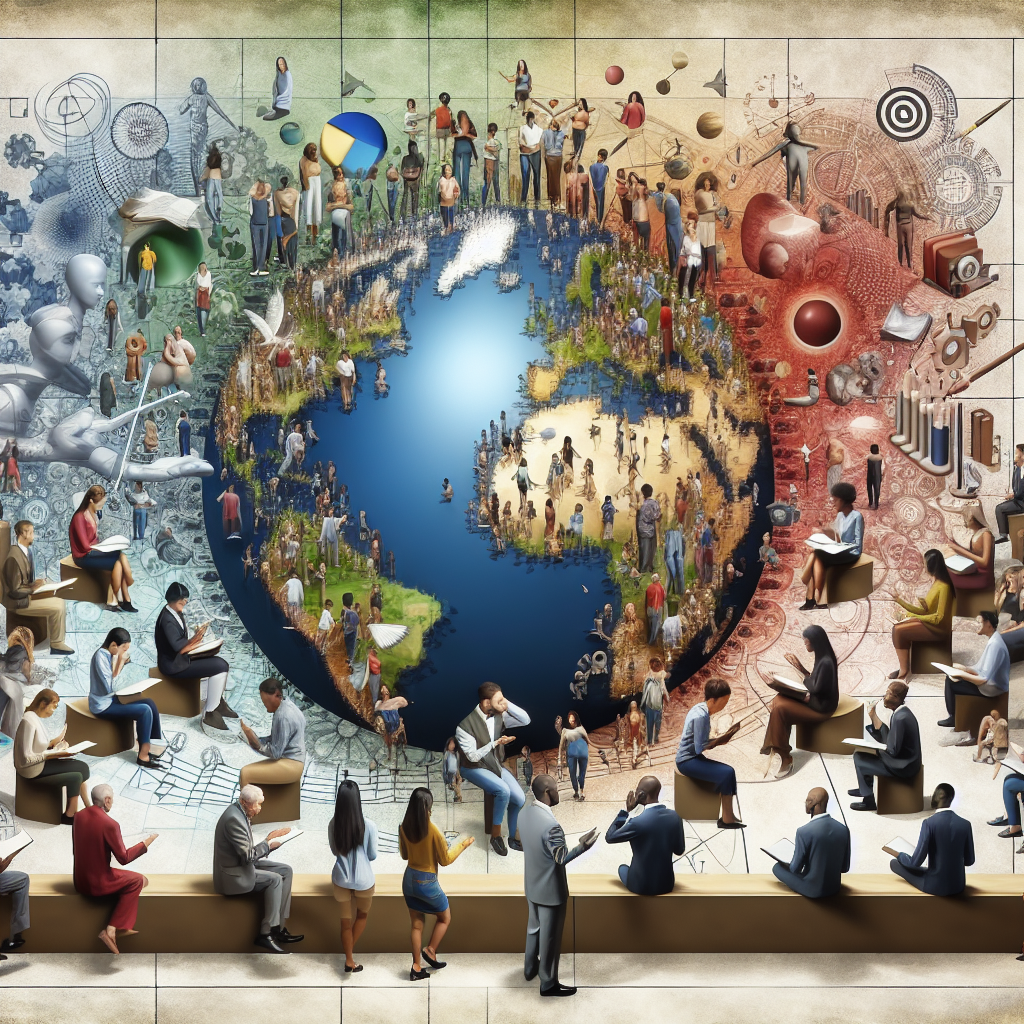Power Dynamics and Cultural Influences

Unpacking Power Dynamics in Cultural Contexts
Understanding Power Dynamics in Cultural Contexts
Power dynamics refer to the way power is distributed and exercised within a society or group. It involves the relationships and interactions between individuals or groups, where one has more power and influence over the other. In cultural contexts, power dynamics play a crucial role in shaping social structures, behaviors, and relationships.
Defining Power and Its Role in Society
Power is a complex and multifaceted concept that can be defined in various ways. In general, power refers to the ability or capacity to influence or control others, either through physical force, authority, or resources. In society, power plays a significant role in determining social hierarchies, decision-making processes, and access to resources and opportunities.
In cultural contexts, power can be manifested in different forms, such as economic, political, social, and cultural power. Economic power refers to the control of resources and wealth, while political power is the ability to influence or make decisions that affect others. Social power, on the other hand, is the ability to shape social norms and behaviors, and cultural power is the control over defining cultural values and beliefs.
Exploring Cultural Influences on Power Dynamics
Culture plays a crucial role in shaping power dynamics within a society. Cultural norms, values, and beliefs influence the distribution of power and the way it is exercised. In some cultures, power is concentrated in the hands of a few individuals or groups, while in others, it is more evenly distributed.
Furthermore, cultural beliefs and values around gender, race, ethnicity, and social class also impact power dynamics. For example, in patriarchal cultures, men may hold more power and authority than women. Similarly, in racially divided societies, one racial group may hold more power and privilege over others.
Impact of Power on Relationships and Interactions
Power dynamics in cultural contexts can have a significant impact on relationships and interactions between individuals or groups. In unequal power dynamics, the more powerful group may dominate, control, or oppress the less powerful group, leading to unequal and often unhealthy relationships.
For example, in a workplace setting, power dynamics can affect the interactions between employees and managers. If a manager holds more power and authority, they may use their position to control and manipulate their subordinates, leading to a toxic working environment. On the other hand, if power is more evenly distributed, it can lead to more collaborative and respectful relationships.
Examining Intersectionality in Power Dynamics
Intersectionality refers to the interconnected nature of social identities such as race, gender, class, and sexuality, and how they impact one’s experiences and opportunities. When examining power dynamics, intersectionality is essential to understand how multiple layers of privilege and oppression can intersect and shape an individual’s power and social status within a cultural context.
For example, a Black woman may experience different power dynamics than a white woman, as she is impacted by both gender and race discrimination. Similarly, a wealthy cisgender man may hold more power and privilege than a low-income transgender individual.
Power Dynamics in Different Cultural Contexts
Power dynamics can vary significantly in different cultural contexts. In some cultures, power is more centralized, and decisions are made by a few individuals or groups. In contrast, in others, power is more evenly dispersed, and decisions are made through consensus. Understanding the unique power dynamics in different cultural contexts is crucial in developing cultural competence and avoiding misunderstandings or conflicts.
For example, in collectivist cultures, where the group’s needs and interests are prioritized over individual needs, power may be more evenly distributed among the group. In contrast, in individualistic cultures, where individual success and achievement are valued, power may be more concentrated in the hands of a few individuals.
Addressing Power Imbalances in Cultural Settings
Power imbalances can be harmful and lead to inequality, discrimination, and oppression. It is essential to address and challenge power imbalances in cultural settings to promote equality and social justice. This can be done by acknowledging and understanding the power dynamics at play, actively listening to marginalized voices, and taking action to redistribute power and privilege.
For example, in the workplace, creating a diverse and inclusive environment, providing equal opportunities for career advancement, and promoting open communication and feedback can help address power imbalances and cultivate a more equitable workplace culture.
Navigating Power Dynamics in Cross-Cultural Interactions
When interacting with individuals from different cultures, it is crucial to be aware of the potential power dynamics at play. Approaching cross-cultural interactions with cultural humility and respect can help navigate power dynamics and promote mutual understanding and learning.
Effective communication and active listening are also essential in navigating power dynamics in cross-cultural interactions. It is essential to avoid making assumptions or stereotyping individuals based on their cultural background and to actively listen and respect their perspectives and experiences.
Confronting Power Abuse and Oppression in Cultural Contexts
In some cultural contexts, power can be abused and used to oppress and discriminate against marginalized groups. It is crucial to confront and challenge power abuse and oppression in these contexts to promote social justice and equality.
This can be done by promoting education and awareness about power dynamics and its impact on marginalized groups, actively addressing systemic discrimination and oppression, and advocating for social and political change.
Moving Towards Empowerment and Equality in Cultural Relationships
In conclusion, power dynamics in cultural contexts play a significant role in shaping social structures, relationships, and interactions. Understanding the impact of cultural influences on power dynamics, examining intersectionality, and actively addressing power imbalances and abuse are crucial in promoting empowerment and equality in cultural relationships.



